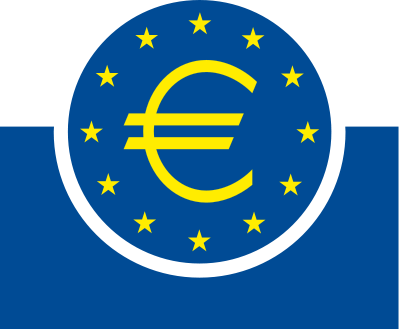The Irish are preparing their agenda, will we pay? Spanish retirees invested everything in bonds, not even knowing how. Congratulations to Ben.
Not that the function of the Presidency had any other meaning besides the generous earnings for catering companies that will take care of the traveling Brussels circus. But when the Irish took the scepter, we start with them.
This peaceful island country has been a decent child in the background for most of the euro crisis. They have done what they were told to without any grumbling. Irish citizens even contributed significantly from their own pockets to the rescue of their banks. Their reward was a general sympathy and ostensibly growing economy. In July last year, they managed to return to bond markets and this week they have successfully expanded an existing bond issue for quite a viable price.
Of course, this must be followed by a “but”. The Irish, encouraged (or provoked) by the Spanish bank bailout paid by European money are asking more and more loudly for European taxpayers’ money also for the Irish banks. Their motivation to push this agenda is not only saving their own money but also to help their still more than fragile financial sector.
Fitch analysts are worried about the continuing fall in Irish real estate prices. They have already lost over half from its peak, but they can write off another 20 %. It is similar with Italians, the Portuguese, Spaniards and Greeks, where Fitch estimated further price drops reaching 13-15 %. But it can be considered an optimistic prediction, at least in the case of Spain, where other estimates say possible falls will reach 30-50 %. The situation is further complicated by the increasing government restrictions on eviction of the defaulted owners from the properties in several countries which slow the market cleaning.
Eventually, Spain sailed through the year 2012 quite elegantly. So far, they have siphoned only 40 billion of European money for their banks. One of the reasons is that the government has discovered a hidden treasure – pension funds. The government quietly used almost all saved 65 billion euro to buy their own bonds. Future Greek retirees ended up similarly.
In addition to many other cuts, reductions and abolitions, the country can wait for further reduction of local bank branches which were also subject to substantial boom. In 2010, Spain had one bank branch per 1 000 inhabitants, while the European average was 3 000 and the Dutch were fine with one branch per 6 000 people. Bank employees responded to the announced layoffs by demonstration.
Bankers in France did not respond by demonstrations but by strike because of the upcoming layoffs in Societe General. Overall, the French banks cannot complain too much. Together with the Italian banks they received over 500 million euro more than they should have from the ECB. ECB did not apply a sufficient haircut on their provided collateral. European banks have recently provided collateral of dubious quality for ECB loans, as collateral of the higher quality has already been used.

This is a file from the Wikimedia Commons. Information from its description page there is shown below.
The French government continues in its plans to introduce higher taxes, despite the recent decision of the Constitutional Court on the unconstitutional character of 75 % tax and the tragicomic escapades of Sergei Ivanovich Depardieu. But as they say, preaching water, drinking wine. Although Greek politicians are experts in tax evasion, the French have also learned something. The case of the French budget minister Jerome Cahuzac is being investigated. Reportedly, he packed his first pennies to Geneva and then to Singapore to save them from taxes. Well, as a ruling politician, he is well aware that the collected money is not going to starving orphans, but to French banks, car factories, or recently to the producers of solar panels.
In Germany, the producers of renewable energy sources received generous sums. In 2012 Germans gave 20 billion euro on green energy. Germany is still doing well. Last year more than 250 000 Italians, 123 000 Greeks (that is 2.4% of Greek workforce!), 50 000 Spaniards and the same number of the Portuguese found jobs there. Unemployment in the euro zone hit a new record of 11.8 %. The record was broken particularly by Spain, where the unemployment for one month jumped by 0.4 % to 26.6 %.
Germany is once again coming under criticism. Foreign banks accused the German financial regulator, that it blocks the flow of capital from the country, on which the Commission expressed its concern. Although it seems like a dry report it is a serious accusation, which just shows how much resistance the project of the banking union will hit.
Britain is waiting for an essential speech of the Prime Minister David Cameron, which will tell us about the near future of the relation between Britain and Brussels. Not only is Brussels concerned about the growing Euroscepticism in the islands, but there are also official voices from the USA that are trying to put the British on the right path.
This week we have said goodbye to one of the Nobel Laureate in economics, James Buchanan. Another Nobel Laureate, the author of a Theory of Optimum Currency Areas and the grandfather of euro, Robert Mundell, has warned about a fiscal union. “It would be crazy to have a central European authority that would decide about the taxes and the expenditures of states.” The President of the European Commission, Barroso, has the most important things clear in his mind: “I think we can say that the existential threat against the euro has essentially been overcome.”
Finally, congratulations to Ben! Fed Chairman, Ben Bernanke, has become the second most powerful person in the world after Vladimir Putin in the ranking of think tank Eurasia Group. He even outran his own president. We wish him a lot of good decisions!


